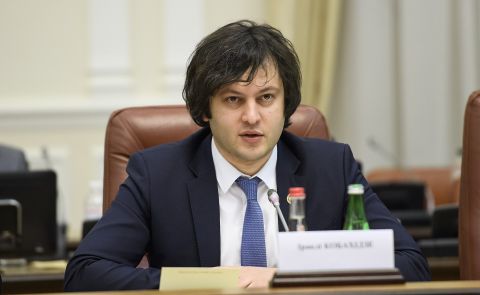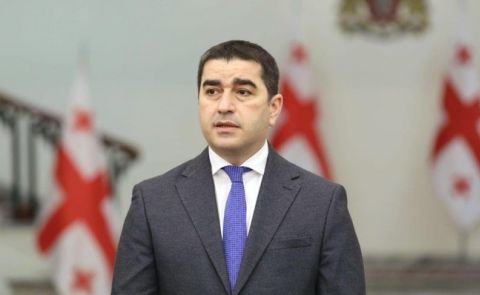
Recent developments in Azerbaijan-Iran tension
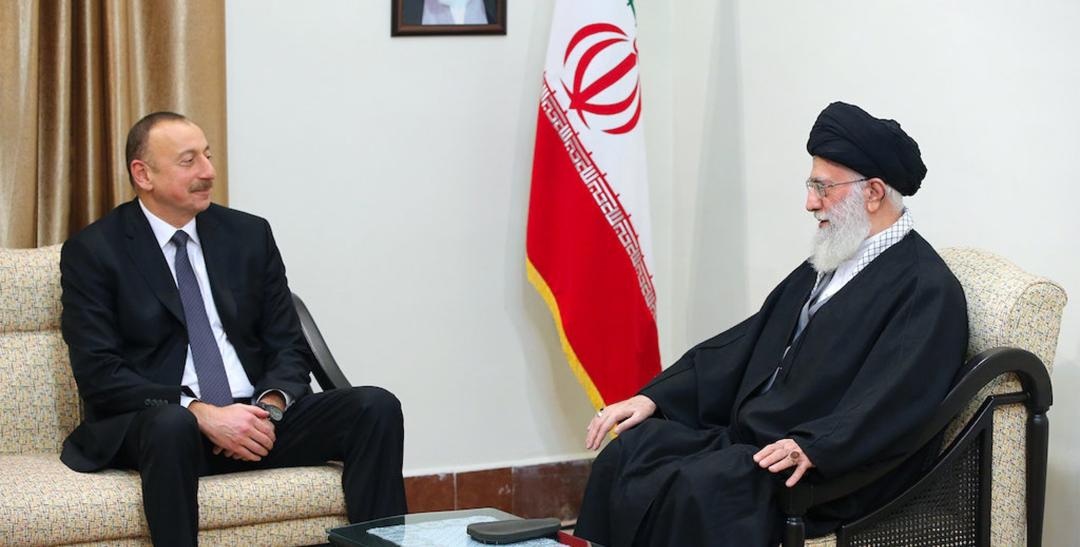
Baku laments over Iran's involvement in Second Karabakh War
The Azerbaijani pro-government Caliber.az website has said that Iranian troops "intruded into Azerbaijani territory" during the Second Karabakh War in autumn 2020.
The website said as they were advancing towards Zangilan along the Iranian border on 17 October 2020, Azerbaijani troops "stumbled upon" Iranian army units.
"Our southern neighbour, paying no regard to international law, the inviolability of the borders and territorial integrity of Azerbaijan, grossly violated the sovereign territory of our country. It was the same Iran whose leadership is talking today about some 'red lines' referring to Armenia's territorial integrity," Caliber.az said.
The website said Iranian soldiers had blocked the way of Azerbaijani troops with concrete barriers, saying that they were protecting the Khudafarin Dam. Caliber.az said that negotiations between Azerbaijani and Iranian commanders had yielded no result, and Azerbaijani troops had retreated to avoid an armed clash with the Iranians.
"In the night leading to 18 October, Tehran was informed through diplomatic channels of Azerbaijan's strong protest over the inadmissibility of the intrusion of the Iranian army into its sovereign territory. Baku threatened that it would make public Tehran's betrayal, which would surely cause a reaction among millions of Azeris on both sides of the Araxes River. The military attaché of the Iranian embassy in Azerbaijan, Javad Frootani, accompanied by Azerbaijani servicemen, was promptly sent to Cabrayil District over the night to study the situation on the spot and resolve it. A day of tense negotiations later, Iran withdrew its troops from Azerbaijani territory. A day which Tehran earned for Armenia," Caliber.az wrote.
It said the move had delayed the Azerbaijani army's speedy advancement and resulted in casualties on the Azerbaijani side.
Another pro-government website Haqqin.az said, quoting Iranian political expert Reza Talebi, that Iran had deployed electronic warfare systems on the Azerbaijani border during the Karabakh war. The goal was first to hand over intelligence information obtained through wiretapping to the Armenian side, and second to test Iran's electronic warfare systems, try to bring down Turkish and Israeli UAVs used by Azerbaijan in the war and learn the technology, the website added.
Tension between Baku and Tehran started to rise following Baku's decision to levy duty on Iranian lorries carrying goods from Iran to Armenia. Iran's accusation that Baku has admitted Israel to its soil, followed by a drill by Iranian army along borders with Azerbaijan, further escalated tensions.
Officials from Baku accuses Iran of establishing agent network
An Azerbaijani MP has accused a senior Iranian official of working to establish a network of agents in Azerbaijan. In the meantime, an Azerbaijani analysis suggested that Iran had used money earned from illegal drug trafficking via formerly Armenian-controlled lands to sponsor terrorism. It is also claimed that Iran was cooperating with "terrorists."
Javid Osmanov, a member of the board of the ruling New Azerbaijan Party, said that Hojjat-ol Eslam Ali Akbar Ocaqnejad, the representative of Iranian Supreme Leader Khamenei in Baku, who left the city recently, had been engaged in establishing an agent network in Azerbaijan.
Osmanov made the remarks in an interview: "He (Ocaqnejad) oversaw the Huseynists Movement, the Islamic Party, the Muslim Unity Movement, and other harmful sects. Iran has a direct prejudice towards Azerbaijan." The MP regretted that "Iran, which has always maintained friendly and neighbourly relations with Azerbaijan, is now taking a biased position regarding Azerbaijan."
Moreover, an analysis published by pro-government APA news agency said that “Iran's Islamic Revolution Guards Corps (IRGC) had directly controlled drug trafficking via the Azerbaijani lands that had been under Armenian control for nearly three decades. The fact that Iran is now losing hold on drug trafficking is the actual reason for Iran's aggression toward Azerbaijan."
The article also said that Iran was one of the countries trying to impede the creation of the "Zangazur corridor" - a possible transport link between mainland Azerbaijan and its exclave Nakhchivan. Tehran believes that the corridor will cause the Iran-Armenia drug trafficking route to close completely, the article suggested. It said that drug trafficking had been directly under the control of the IRGC, and money earned from this was used to meet the demands of the organisation, including the financing of foreign terrorist organisations and groups.
The analysis also said that most of the trucks sent to Armenia and the part of Karabakh that remains under Armenian control belonged to an Iranian company based in the north-western towns of Sufian and Tabriz. The company is a subsidiary of a company that operates under the protection of the IRGC, and the trucks that came from Iran's northwest used at least two different routes to enter Karabakh - the Goris-Lachin road and one running from Iran's Ardabil Province to Azerbaijan's Jabrayil District (which Baku retook in the war), the article said.
In the meantime, the pro-government Minval.az news said that Baku has effectively accused Iran of cooperating with “terrorists.”
This referred to a statement the Azerbaijani Ministry of Foreign Affairs released on 11 October in response to remarks made by Iranian Foreign Minister Hossein Amir-Abdollahian on Lebanese Hezbollah-linked Al-Manar TV. Baku said Iran was continuing its "slander campaign" against Azerbaijan and rejected accusations that there "were" or "are" any terrorists on its soil. "Our advice to those searching for terrorists is to search for them (terrorists) in their own surroundings," the ministry said.
The pro-government also said that Iran had made "a fatal mistake" by thinking that Azerbaijan had earlier sought to avoid an escalation in its relations with Iran because it feared Tehran.
Iran on its relations with Azerbaijan and Armenia
An Iranian Foreign Ministry spokesman said Tehran and Baku had "very good and multi-layered" relations.
"I said at a press conference yesterday that our relations with our neighbours, including Azerbaijan, are normal and it is abnormal not to build relations with them," said Khatibzade.
Earlier, in an interview with Russia's state channel Rossiya 24, the Iranian Foreign Minister assessed relations with Azerbaijan. Saying that Azerbaijan and Armenia are "good neighbours," Hussein Amir Abdullahian said he could visit Baku and Yerevan.
"Developing relations with our neighbours, especially our northern neighbours, is one of the main principles of the new Iranian government. Azerbaijan and Armenia are our good neighbours. And we cannot work against each other. Our foreign policy is balanced."
The statement comes amid tensions between the two countries. Earlier, Iran said that there were "Israeli military forces" in Azerbaijan. Baku denies the allegations.
Meanwhile, the Iranian army and the Islamic Revolutionary Guard Corps (IRGC) began military exercises in the central regions of the country. According to the report, the exercises’ main purpose is to increase combat readiness for air defence.
Earlier, the Iranian army held exercises near the Azerbaijani border. According to the Iranian side, additional forces and equipment have been deployed on the border with Azerbaijan.
Iran on meetings with Baku
During his visit to Russia, the Iranian FM said in an interview with the state channel Rossiya 24 that he had "friendly and sincere" discussions with his Azerbaijani counterpart Jeyhun Bayramov within the UN General Assembly.
"What worries us in the South Caucasus: first, some foreign forces are trying to influence the region to change its borders, close or relocate border crossings. We also note the presence of terrorists in Karabakh during the war. We will never do that. We say without questioning the territorial integrity of our neighbours. In talks with us, Azerbaijani officials have promised to take measures to rid the region of terrorists," Iranian FM added.
In addition, Iranian Foreign Ministry spokesman Saeed Khatibzadeh said his country was "very serious" about national security and would not "compromise" on the issue, saying that Iran's neighbours "are well aware of this" and "received strong messages."
He told a news conference that it was "unnatural" to disrupt relations between Azerbaijan and Iran.
"Relations between the two countries have always followed a logical process. Iran has expressed concern to the Azerbaijani side, and they have said they will address these concerns. We have told the Azerbaijani side that some of Iran's concerns need to be addressed," he flagged
The reaction of the Azerbaijani Foreign Ministry to the statement about Baku's "promise" is unknown. However, the organisation said in a statement last week that it did not accept allegations that Azerbaijan had "any third forces near the border with Iran, provocative attempts by these forces," and that these claims were "baseless."
Regarding the minister’s meeting in the United States, the Azerbaijani Foreign Ministry said that the meeting noted that cooperation between Azerbaijan and Iran is developing in all areas. Jeyhun Bayramov briefed his Iranian counterpart on the restoration, reconstruction, and reintegration processes in the liberated territories, while Hussein Amir Abdullahian stressed Iran's interest in developing comprehensive relations with Azerbaijan.
The Azerbaijani and Iranian foreign ministers discussed the "current state of relations between the two countries."
Azerbaijani Foreign Minister Jeyhun Bayramov discussed the "current state of Azerbaijani-Iranian relations" with his Iranian counterpart Hussein Amir Abdullahian.
The Azerbaijani Foreign Ministry (MFA) said in a telephone conversation on 12 October that the ministers spoke about the mutual accusations voiced in recent days.
"The parties noted the harmful rhetoric observed recently, which does not correspond to the level of friendly relations between our countries, and the need to resolve all differences through dialogue," the ministry said.
According to the MFA, the ministers agreed to discuss issues related to transit through Azerbaijan "through direct contacts between relevant government agencies."
Other issues of mutual interest were also discussed during the telephone conversation.
The disagreement between Iran and Azerbaijan arose in September after Azerbaijan began to control the part of the Goris-Kapan road passing through its territory, checking the documents of drivers of Iranian origin and asking them to pay customs duties.
The Iranian government accuses Azerbaijan of "deploying Zionist forces" in the border areas and President Ilham Aliyev said that these accusations were baseless, and that "there are no buildings" in these areas bordering Iran.
Iran's start of military exercises on the border with Azerbaijan on October 1 has caused dissatisfaction in Baku. President Ilham Aliyev noted that such training had not taken place during the 30-year occupation of some border areas with Iran.
See Also

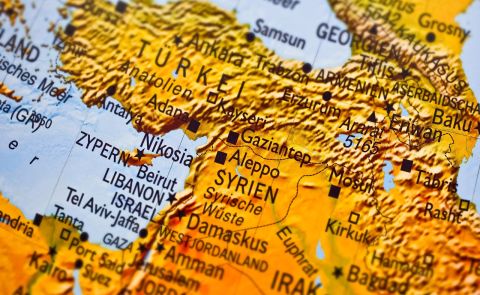
Separatist Abkhazia and Syria Discuss Strengthening Academic Ties, Potential Agreement Between Universities
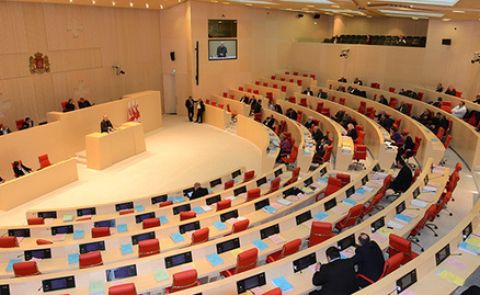
Georgia Announces Legislative Changes Targeting Foreign Nationals in Anti-Government Protests
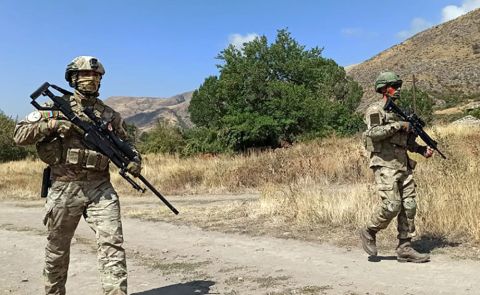
Azerbaijan Welcomes PKK's Announcement to Disband, Calling It a Step Toward Peace
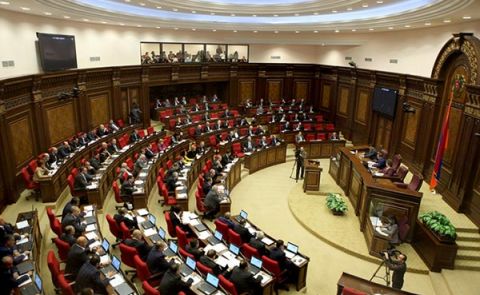
Heated Debate in Armenian Parliament Over Property Confiscations and Opposition Accusations
